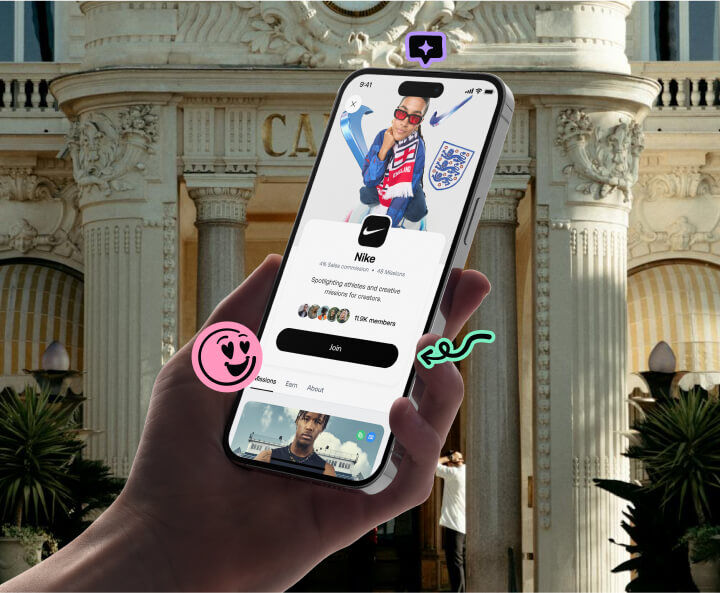9 essential influencer marketing skills every marketing manager needs to thrive


1. Excellent written communication skills
In an influencer marketing program, everyone needs to be on the same page!
A significant portion of the interactions within an influencer marketing program happen through written communication like emails, DMs, briefs and contracts. To successfully manage relationships with influencers, you need to be able to write clearly, concisely and in the right tone.
Crafting messages that strike the right balance between professionalism and friendliness is essential because miscommunication can lead to strained relationships and lost opportunities. A single email that feels cold or impersonal might put a damper on what could have been a great partnership. On the other hand, a well-written message can help build trust and lead to long-term collaborations.
Exceptional written communication skills are invaluable for building a strong network of influencers who are excited to work with your brand and share your vision.

2. Time management mastery
An influencer marketing program demands a considerable time commitment. From discovering and recruiting influencers to managing ongoing partnerships, each step of the process takes time. Add to that the tasks of developing campaigns, executing them and analysing their results and you quickly realise how important excellent time management skills are!
Knowing how to prioritise tasks and streamline workflows is a must for any influencer marketing manager. This might include using project management tools to keep track of campaigns, deadlines and deliverables. Finding influencer software solutions that automate repetitive tasks – such as sending outreach emails or processing payments – can also free up time to focus on the bigger picture.
By effectively managing your time, you can ensure campaigns run smoothly and deadlines are met, resulting in a more efficient and successful program.

3. Tech savviness
We live in a hyper-digital age, so being tech-savvy is non-negotiable for influencer marketing managers. This role involves using various software platforms, tools and social media networks to manage campaigns and track results. You must be able to quickly learn and master these tools to give your influencer program the best chance of success.
It’s also crucial to stay updated on the latest features of social media platforms like Instagram, TikTok and YouTube. Each platform evolves constantly, and knowing how to leverage new features or trends can give your campaigns an edge over your competitors.
A successful influencer marketing manager should be familiar with analytics tools, CRM systems and content management platforms. Staying on top of emerging technologies and trends is a huge part of making sure that your program stays relevant and competitive.

4. Strategic thinking capabilities
You must be able to measure the impact of your efforts, and this starts with setting clear, measurable goals. A keen analytical mind is essential to interpret data from campaigns and turn those insights into actions that will boost results.
Setting SMART goals (Specific, Measurable, Achievable, Relevant, Time-bound) ensures you have clear objectives to track, making it easier to assess performance.
Whether it’s tracking engagement rates, conversion rates or follower growth, analysing the performance of each campaign helps refine the overall strategy. By identifying what works and what doesn’t, you can optimise future campaigns for even more success.
Understanding the data also allows you to measure ROI accurately, which is critical for justifying the budget and resources allocated to your influencer marketing campaigns. Ultimately, a strategic approach rooted in data-driven decisions and goal-setting will help the program continuously improve and deliver stronger results.

5. Organisational skills
You probably juggle a lot of moving parts as an Influencer Marketing Manager. From handling multiple creator relationships to managing campaign deliverables, there’s always something that needs your attention. To keep everything running smoothly, organisation is key.
A disorganised manager risks missing deadlines, forgetting to follow up with influencers or losing track of content submissions. Staying on top of everything requires systems that keep conversations, contracts, campaign materials and performance metrics easily accessible and well-organised.
Effective organisation isn’t only about seamless influencer campaigns, but can also help identify opportunities to improve! From processes and resources to ROI there are opportunities to improve, save and maximise! A well-organised influencer marketing strategy is more likely to scale successfully and achieve long-term success.

6. Solutions-driven and flexible
Let’s face it: things rarely go exactly as planned. You should be able to roll with the punches, pivot when necessary and not get overwhelmed when things don’t work out. Working with social media content creators often means dealing with people from different time zones, cultures and schedules, which can lead to unexpected challenges.
What happens if a creator misses a deadline for delivering time-sensitive content? How do you handle an influencer who suddenly faces a public scandal? Not only should you remain calm under pressure, but you also need to be able to adapt and find solutions.
As trends and tactics shift, you’ll need the flexibility to adjust strategies and implement fresh ideas. A manager who can quickly adapt to new trends and feedback will keep your program relevant, dynamic, and on track for success.
7. Expertise in community building
One of the major shifts in marketing today is the move from relying on mega-influencers to building smaller, more engaged creator communities. Trust in social media celebrities has waned, and brands are turning to micro-influencers and nano-influencers who offer more authentic connections with their followers.
For an influencer marketing program to thrive, you must excel at community building. This involves recruiting and nurturing a diverse group of creators who share your brand’s values and vision. The goal is to create a loyal, tight-knit community where creators feel valued and motivated to promote your brand.
By cultivating strong relationships with creators, a manager can nurture an environment where brand advocacy comes naturally, resulting in more genuine content and deeper connections with your target audience.

8. Creativity and innovation
In the crowded world of social media, creativity is what sets successful campaigns apart from the rest. You should come up with fresh, innovative ideas that capture attention and make your brand stand out.
Gone are the days when a simple photo of a creator with your product was enough. Today’s audiences crave content that is unique, authentic, entertaining and interactive. Whether it’s leveraging viral trends, creating immersive experiences or organising creative challenges, an influencer marketing lead must think outside the box to engage audiences.
Creative campaigns not only make your brand more memorable but also encourage creators to get excited about working with you, which leads to way more impactful, attention-grabbing content.

9. Relationship building and management
Building and maintaining strong relationships with creators is at the heart of a successful influencer marketing program. You should aim to cultivate long-term partnerships that go beyond once-off collaborations. This requires genuine relationship-building, trust and mutual respect between the brand and the creator.
Effective relationship management involves regular check-ins, providing creators with clear expectations and feedback, and ensuring they feel valued and appreciated. Offering personalised incentives and rewarding top-performing creators can help reinforce these relationships. Additionally, being responsive, transparent and approachable encourages loyalty, which leads to creators being more motivated and passionate about representing your brand.
Strong relationships also make it easier to navigate challenges when they arise, such as renegotiating contracts, resolving disputes or coordinating tight deadlines. A Head of Influencer Marketing who takes the time to build and maintain relationships will be able to create a network of creators who are not only engaged but are also enthusiastic advocates for your brand.

Final thoughts
Focusing on these nine influencer marketing skills will make influencer campaigns way more impactful, but there are a lot of moving parts that can make it challenging for one person to take on.
Luckily, there are tools designed to simplify the process. Micro-influencer management platforms can help you save time with automation like reward payouts, communicating with your community, collecting UGC and reporting on the data. Learn more about Club’s solution for managing micro-influencer marketing campaigns.
Keep up with the
latest from Club

Get more inspiration

Marketing brand ambassadors: What is ambassador marketing and why it works


 Book a demo
Book a demo



